Will the Media Siege on Abia End Now?
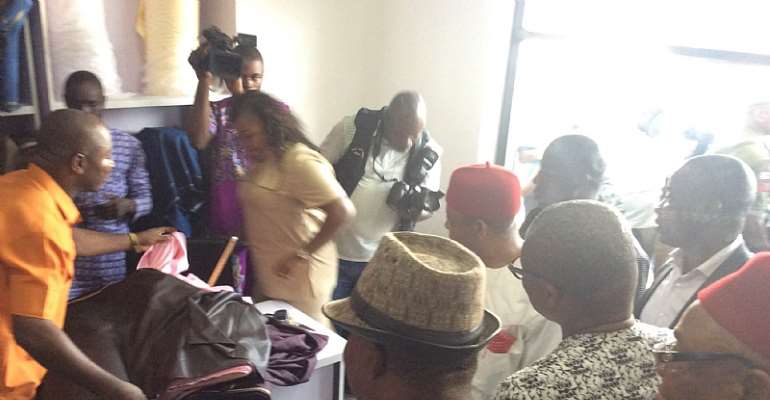
Perspective
With the Abia State elections won and lost, will the media siege on the state end, asks Mike Nwachukwu
As Nigerians across the different states rejoice over yet another smooth transition from one set of democratically elected administrations to another, it will be a different sense of celebration in Abia State. On Saturday, May 29, 2015 , the good people of the state will sigh in relief in expectation that the siege laid on their state by two newspapers owned by one of their own will be over.
This is because though their outgoing governor, Chief T.A. Orji, has performed to their general satisfaction, this illustrious son of theirs has been unrelenting in using his two newspapers to wage a psychological war on the entire citizenry of the state for choosing to support the governor in its programme of transforming the state.
Although the quarrel between the newspaper mogul and the governor is a personal one, the former used his media prowess to paint the state in very bad light as a place where nothing works. The attacks on the state has been so persistent that but for the fact the Nigerians are familiar with the idiosyncrasy of the newspaper proprietor as a fellow who sees himself as the only shining star in the state, Abia would have since become a pariah.
The proprietary or otherwise of the media siege laid on Abians by one of their own is a topic for another day but the concern today is that even as Abians salute the man they finally refer to as “T.A.” for a job well done, it is difficult for Nigerians who never visited the state in the last eight years to believe that it is not an assemblage of never-do-wells.
Such is the tragedy of a people hitherto seen as among the most discerning and hardworking but now so psychologically battered by one man, impressing it upon them that after him no one else in the state matters.
Still, while this write-up is not necessarily an appraisal of the eight-year tenure of Governor T.A. Orji, its basic objective is to once again draw the attention of Nigerians to what the politics of hate could do to a people, who have in the last eight years collectively worked in one page under the able supervision of T.A.
The emphasis here is on the word, “collective”. For, even as the administration of Governor Orji proved its mettle in trying to improve the lives of Abians through the provision of infrastructural amenities, it will be perhaps most remembered for bringing the good people of the state to work together for their collective good. Anybody familiar with the state before T.A. Orji would easily agree that Abia was fragmented into many tendencies and that there was a complete breakdown of elite consensus.
The administration that preceded that of T.A. preferred to reign over rancor; its political elite virtually decided to dissociate itself from the state while the government of the day fancied itself as a champion of the federal republic instead of seeing to the welfare of the local citizens. But as Chief Orji bows out on May 29, 2015 , it is to his eternal credit that Abia has been returned to a place where members of the political class work for a common goal, regardless of partisan differences.
There was this newspaper report some years ago quoting a certain Minister of the Federal Republic of Nigeria and who happens to be an indigene of the state as saying that he never visited the seat of Abia State government throughout the period he served as Minister. The reason, he was quoted, was the overbearing demeanor of the then governor who saw every member of the political elite as a threat and who even tended to abandon his own duties in Umuahia to concern himself (chiefly) with matters of the federation.
But providence threw up Orji who was actually part of the previous dispensation, to correct all that. With the benefits of an insider who witnessed the oddities of the hegemonic dispositions of his then boss, the first thing Orji did was to embark on reconciliatory moves to bring the elite back to the state to work together. That moves paid off handsomely and for eight years running, it has been near total equanimity among the political class.
The first indication is that the ruling party in the state, the Peoples Democratic Party (PDP), became so cohesive under Governor Orji and an example of party decorum. The second indication and perhaps the most significant is that Abia became the only state in the entire South-east, where you could find Senators and Ministers of the state’s origin sitting at the same high table with the governor in a function.
In the neighbouring Enugu and Ebonyi States, which like Abia are all PDP states, the governors and their ministers are hardly in talking terms. In Imo, it is war between the governor and virtually every other member of the political elite. In Anambra state, the fellow who held sway for eight years until last year did it all alone to the extent that he carried his travelling bags himself.
Political scientists all agreed on the point that seventy per cent of governance is made up of intangibles. The intangibles here include attitudes and dispositions such as allowing others to make inputs into governance. Above all, it entails consensus building and ability to ensure a stable polity, where acrimony is reduced to the barest minimum. Chief Theodore Ahamefule Orji, out-going governor of Abia State, scores quite high in this aspect which, on the converse, is where more than 80 per cent of state chief executives in Nigeria scores very lowly.
In agreeing that intangible achievements are very germane to good governance, experts point out that consensus building, which is the most significant outcome of that approach to governance, inevitably leads to the strengthening of government which should be the ultimate aim of democratic governance. In this sense, every successive administration only needs to improve on what the preceding one did with a cumulative effect on the wellbeing of the governed.
Unfortunately, the situation so far in the Nigerian experience is that each new governor comes with a mindset of outshining his predecessor. The first thing a new governor does, in most cases, is to demolish the institutions put in place by his predecessor. Even projects that are more than half way executed are abandoned and entirely new ones began at the expense of the people.
But soon, the people would discover that it is mere merry-go-round. The new administration ends up doing the same thing that was done before. Even where there are semblances of newness, they are white elephants projects that do not impact directly on the lives of the people apart from invoking the abused sentiments of Ihe Ahuru N’Anya (What the eyes can see).
To be sure, state governors who do not have either the academic or social background to run consensus building administrations have tried to make up that lapse by inundating their people with physical infrastructure that are in most cases phantom or achieved at provocative costs. In most cases, the people try to find consolation on the mere sight of such structures even where they are of the lowest qualities.
One people that once suffered the fate of the proverbial candle lit at both ends were the good people of Abia State. For at least eight years prior to the administration of Governor Orji, they were at once reduced to mere onlookers and at the same time saw nothing in terms of any meaningful effort to physically develop their state.
It was in such circumstances that T.A. Orji took over the affairs of the state but as noted earlier in this article, he realised that the first thing to do was to bring back the people together. In terms of physical infrastructure, the state could not boast of even a Secretariat more than eleven years after it was created. Civil servants crisscrossed the state capital between make belief private buildings that served as offices, with the attendant negative implications on productivity.
That is just one case but even as the governor made to give civil servants in the state a conducive environment to perform their duties, the security situation in the state became so bad, no thanks to the precedence created by the previous dispositions that encouraged political brigandage and violence in a bid to get even with anybody or group that showed any traces of dissent.
By 2011, just as the governor was settling down for his second term in office, the crime rate in Abia State, especially in the area of kidnapping, had risen so high that the state became a pariah state. Residents of Aba and the state capital, Umuahia, fled to other parts of the South-east. But calmly and not given to theatrics, Governor Orji knew that war was not going to be fought on the pages on newspapers.
Instead, he went into a rare collaborative effort with the security agencies and in no time, kidnappers were completely routed in the state.
Initially, some of his critics said it was a mere palliative effort but Nigerians eventually discovered that the criminals were gone for good. Till date, Nigerians still baffle at how the administration of Governor Orji did it as though it was a magic. But insiders said it was nothing of that sort. It was, they said, the result of the same rare ability in Chief Theodore Orji to get the best out of people by creating a conducive environment for them to work in.
Some of the governor’s critics try to dismiss the crime fighting feat as rather infinitesimal and something that cannot be over dramatised in appraising his administration. While no amount of pretences can diminish the importance of what the governor did in the area of crime fighting, it needs no exaggeration to state that he excelled even in the realm of physical infrastructure.
As noted earlier, for an administration that inherited little or nothing in that area, it is on record that Orji’s administration not only overcame the deficiencies but went ahead to overtake states whose chief executives placed newspaper advertorials and sponsored live television coverage to announce the completion of even the smallest project.. To be sure, a tabulation of the things posted by the T.A. Orji administration is outside the scope of this write-up but it is not for nothing that the World Bank in 2014 rated Abia State as ranking in number four in infrastructural development out of the 36 states of the federation.
In late 2014, a fact–finding team raised by the Peoples Democratic Party, after an extensive tour of Abia State, declared Governor Orji as the best performing governor in the South-east. The team, which arrived the state against the backdrop of orchestrated newspaper campaigns by the latter day newspaper mogul, was quick to say that there was a “media conspiracy” against the governor aimed at diminishing the giant strides of his administration in raising the bar of governance and delivery of democracy gains to the door steps of the people.
Upon arriving the twin–tower state secretariat complex built by Governor Orji, the leader of the team rather unconsciously exclaimed, “This is second to none”. The edifice in a 200-office ultramodern complex that relieved the agony of civil servants, who for several years had made do with ramshackle rented apartments scattered all over the state capital, Umuahia.
There is the 5000-seat capacity international conference centre initiated and completed by the Orji administration. There is the new Government House which the state could not boast of after 23 years of its existence but now in place. There is the e-library complex.
There is the Joint Account and Allocation Committee (JAAC) building and the Abia State Universal Basic Education Board (ASUBEB) building. For Health, there is the diagnostic centre built by the administration and equipped with the latest technology. The hospital is now a major referral centre in the Eastern part of the country.
We can go on and on but as noted earlier, it is not edifices that matter. Unknown to those who try to rate the governor from what some emergency columnists write about him in the newspapers, Abians do not even look at T.A. through that provision. They look at him from the point of view of a liberator, who brought them out from the jaws of the caterpillars of the common wealth who pillaged the state resources in a manner it suited them while the cow that produced the milk languished in severe want.
Initially, keen watchers of events in Abia thought that Governor Orji orchestrated the bitterness of his former boss and ex-governor of the state, Dr. Orji Uzor Kalu, after he loosened his grip from the latter to be able to serve the people without let or hindrance. But they have since seen that the bitterness is real. Eight years after the fight began, the former governor daily deploys more deadly arsenals on Orji and his administration.
Some observers had thought that a line would be drawn at a point. But it gets worse and the only reason is that contrary to expectations that the campaign of hate would detract Governor Orji, he went ahead to post monumental achievements in the face of scarce resources.. The bad news again is that the respite the people may experience now that T.A. is leaving the stage may, after all, be a temporary one.
In the newspaper editorials referred to as the beginning of this article, the authors served what looked like a notice to the incoming governor, Dr. Okezie Ikpeazu, after labeling him as “part of the infamous Orji administration”. As it is, therefore, Nigerians are waiting to see how the Abia State born newspaper mogul and his outfits will continue with their self-imposed assignment as the policemen of Abia State after the exit of Chief Theordore Orji who came, saw and conquered.
-Nwachukwu wrote from Umuahia
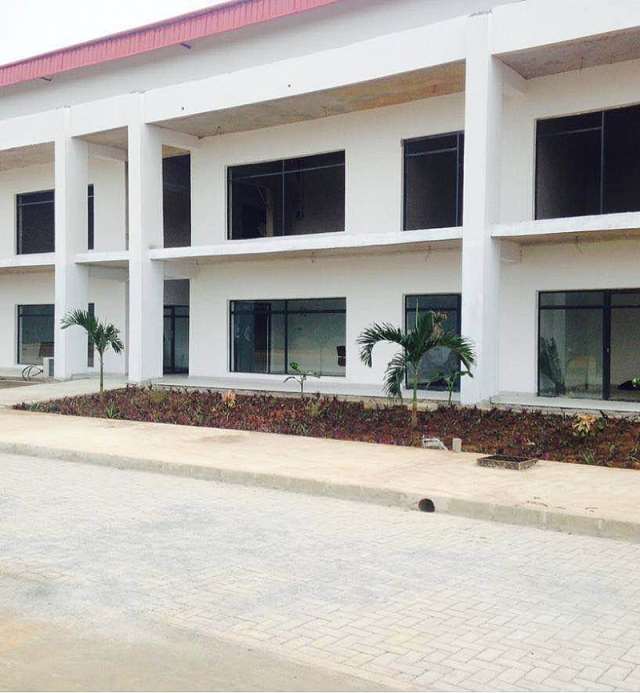
(NULL)[1]
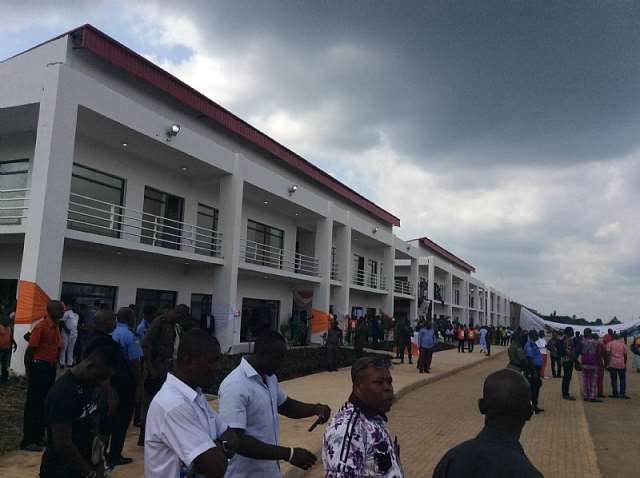
IMG 7469

IMG 7473
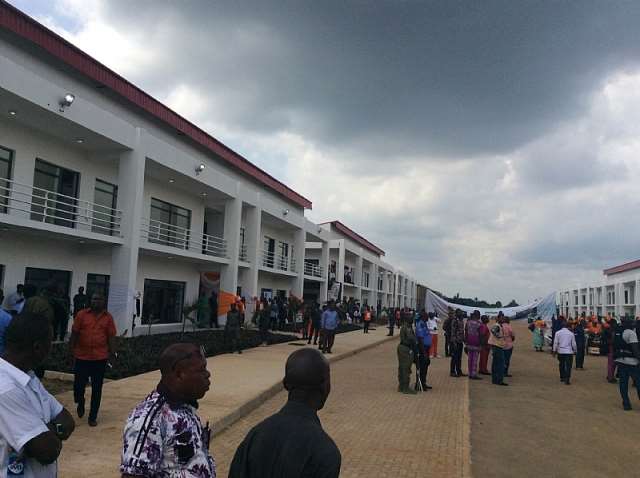
IMG 7474
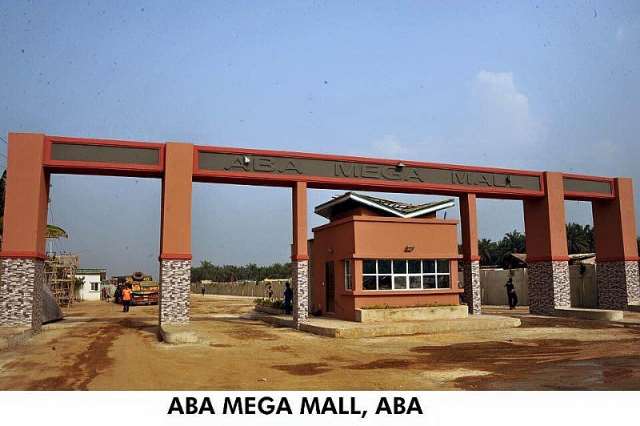
IMG 7478
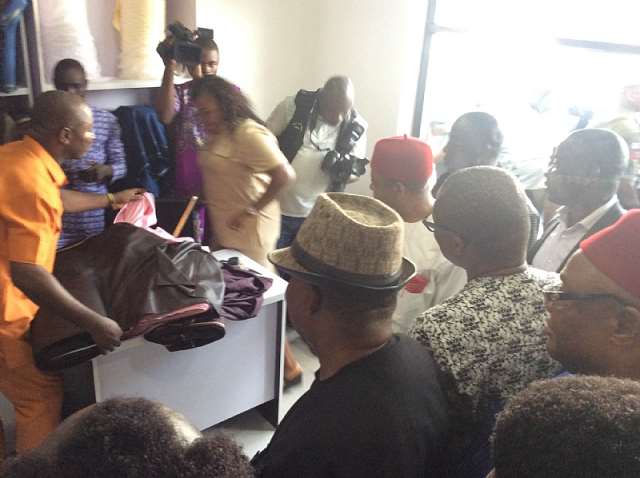
IMG 7488
